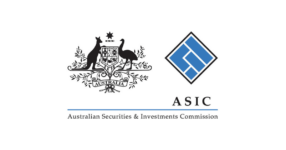ASIC Slams Insurance Industry, But What Will Be Done About It?

An investigation by the Australian Securities and Investment Commission, or ASIC, has led to a damning indictment of the nation’s insurance industry.
In its report of 23 June 2023, titled When the price is not right: Making good on insurance pricing, the regulator found systemic failures throughout the insurance industry including poor management of risk leading to ‘significant consumer harm’, unjustifiably inflated pricing for premiums and increases, and widespread conduct issues requiring further investigation, including potential offences under the Australian Securities and Investments Commission Act 2020 and Corporations Act 2001.
And while many of us have known, or at least suspected, that inflated prices seem to have little or no justification, the report confirms this and has people asking – well, what will the regulator do about it ?
Report confirms what we all suspected
Indeed, word on the street for a long, long time – conversations with taxi drivers, over the neighbourhood fence, or at the office water cooler – has centered around concerns about escalating premiums, which are crippling consumers and small businesses; confusing pricing practices, and the jargonistic fine print of contracts which are difficult for the layperson to understand.
Most of us know that insurance is a necessary beast – it’s a relief to have it when things go wrong, but in recent years, there have been mounting stories of people who thought they were covered, only to find they’re not.
In addition, there are stories of claims being refused, and long wait times for claims to be assessed and paid out – this has certainly been the experience of many bushfire and flood victims.
Scathing review
In addition to inflated prices and price increases generally, the report found that insurers are charging loyal customers more than those who have recently purchased an insurance product, knowing they are unlikely to shop around, and that loyalty discounts do not make up for to higher rates.
The report further found that marketing material for some companies promised discounts that were not mathematically possible, raising concerns they may be concealing fraudulent activity such as Ponzi schemes.
Reasoning behind review
The review follow’s ASIC’s intervention in the industry late in 2021, when it directed 11 general insurers to complete comprehensive reviews to ‘find, fix, report and repay’ pricing failures. The insurers reviewed 2,000 price promises across more than 500 general insurance products and 50 brands.
Fast forward to last week, ASIC’s own review found that ‘this systemic failure by insurers to deliver on their pricing promises has seen more than 5.6 million consumers overcharged $815 million for their insurance.’
The figure is an approximation only, and it dates back to failures date as far back as 2018.
ASIC further noted that ‘ensuring that consumers are charged correct premiums and receive the
full benefit of discounts, benefits or rewards promised is not only required by the law; it is the foundation of consumer trust and an efficient and competitive insurance marketplace.
If pricing promises are not delivered in full, consumers will be overcharged for their policies or not receive all of the benefits.
It can also exacerbate current pressures on access and affordability of general insurance for Australian households.’
Four years on from the Hayne Royal Commission
ASIC has already commenced legal action against a number of insurers, filing civil penalty proceedings against Insurance Australia Limited and RACQ Insurance Limited for allegedly failing to honour pricing promises or misleading customers.
Earlier this year, MLC was fined $10m by the Federal Court for failing to pay nearly 120 disabled or injured clients for rehabilitation programs it had promised to cover.
The Federal Court also fined AMP $24 million for charging thousands of dead clients for insurance and financial advice despite knowing they had passed away.
Some might consider these fines merely a ‘slap on the wrist’ for these large corporations which post annual profits that run into the hundreds of millions.
But the good news, some recourse is coming for consumers, despite the fact that it is long overdue. Many of the issues now being rectified date back to the Hayne Royal Commission into Banking, Superannuation, Insurance and Finance, which delivered its final report in 2019.
A big part of the problem is that many companies have profited from the fact that people don’t understand the complexities of most financial products and services – and there have long been class for them to use language which is much clearer, to make details more transparent, along with a call for these companies to take their responsibility for consumer service much more seriously, knowing that in many cases, consumers need more education at the point of sale and policy renewal.
The insurance industry also needs a massive clean-up around governance.
What happens next?
Many of these large corporations have got away with confusing pricing practices for years, which is just not good enough. Poor practices and lack of consumer consideration only serves to deteriorate trust and integrity within the industry.
And this has serious implications for the wider economy, particularly if, as a result, people begin to shy away from holding insurance. The insurance industry alone is worth about $70 billion in Australia, with 10 companies holding the lion’s share of that market value.
While ASIC is certainly stepping up to its responsibilities as the corporate watchdog, there are fears that there may be other systemic issues that it may not be able to identify or police on its own, given its limited scope and resources.
And, of course, all of this brings the discussions around to the fact that whistleblowers are crucial in uncovering wrongdoing, however Australia’s weak legislation offers limited protection for whistleblowers and therefore little incentive for employees to speak up about misconduct or other unethical behaviour when they encounter it.
ASIC regulates the conduct of Australian companies, financial markets, financial services organisations (including banks, life and general insurers and superannuation funds) and professionals who deal in and advise on investments, superannuation, insurance, deposit-taking and credit.
Under its powers, it has the authority to commence both civil and criminal proceedings against any company or individual who has broken the law. The final report of the Hayne Royal Commission, referred 13 cases to ASIC for investigation.
In addition, 32 case studies — tragic personal tales from the inquiry’s witness box — were examined to see if banks should face prosecution. Of a total 45 investigations, 20 have been concluded with no further action, others ASIC has taken action on.
However, as has been noted by many legal experts, uncovering wrongdoing is one thing, bringing cases to court is another. To do so ASIC needs to look beyond information reported to the royal commission to find clear evidence of wrongdoing. With sufficient evidence, the matter is then referred to the Director of Public Prosecutions who makes a decision to pursue the matter through the courts, primarily based upon satisfaction that there is a reasonable probability of conviction.







